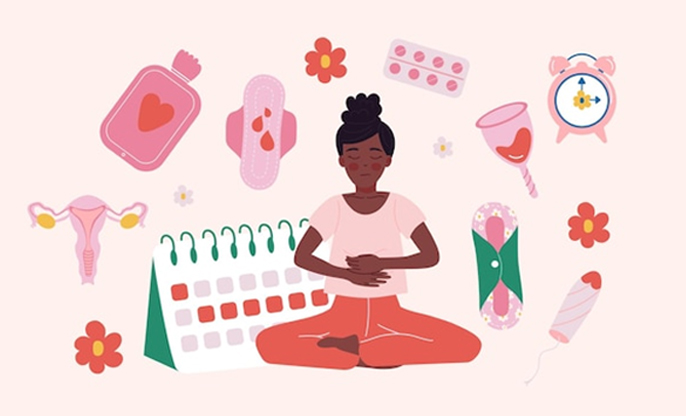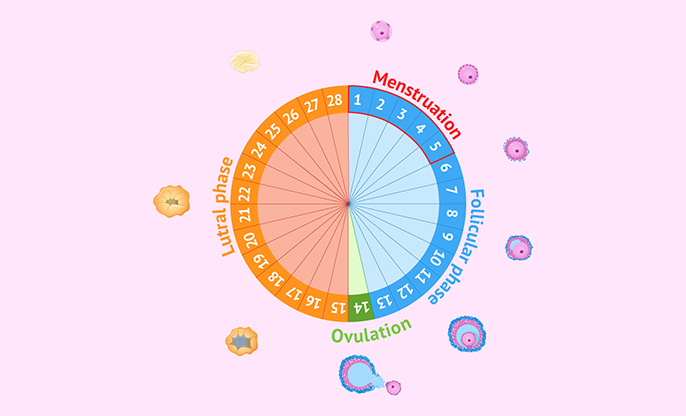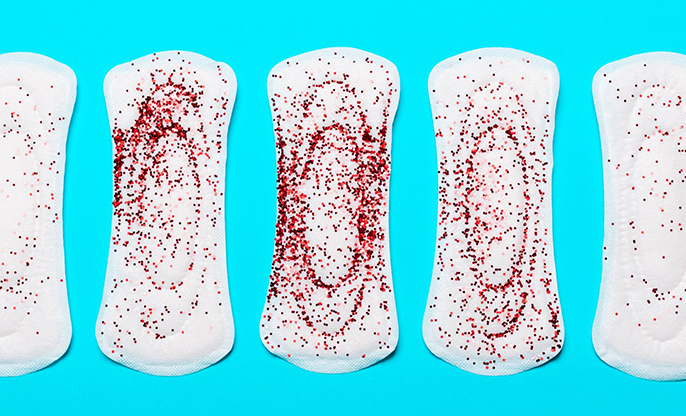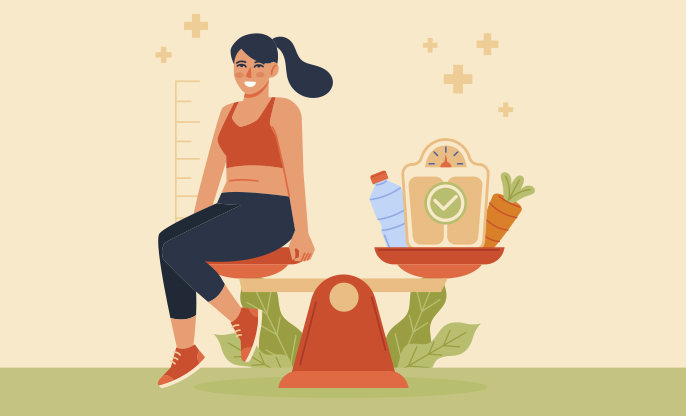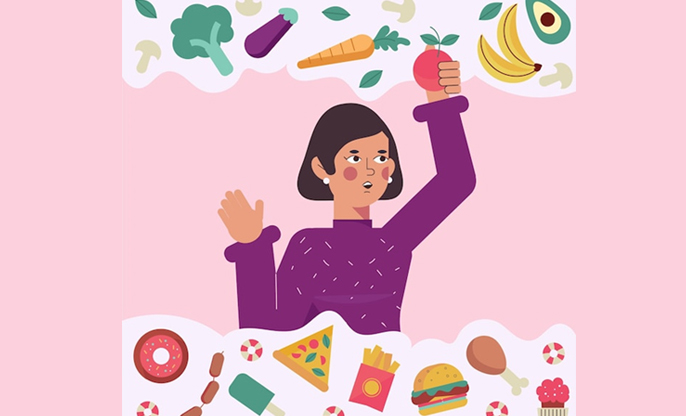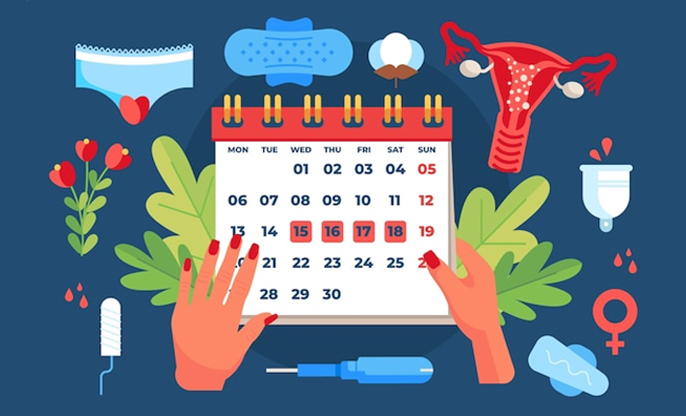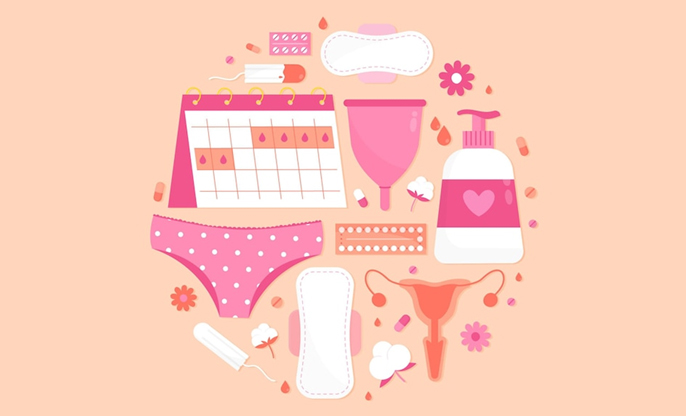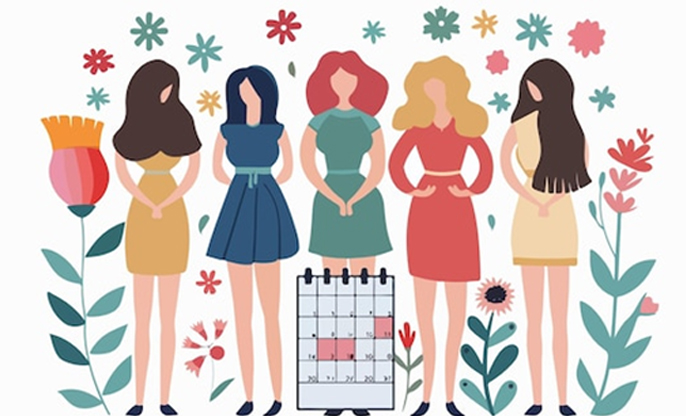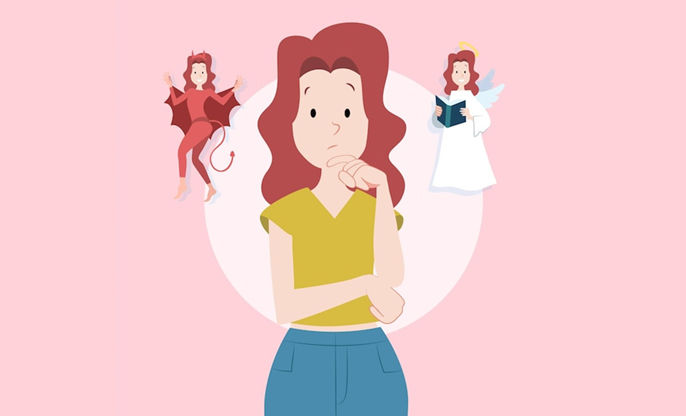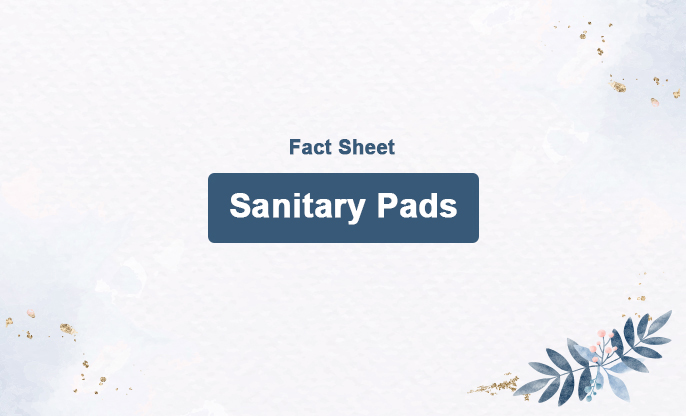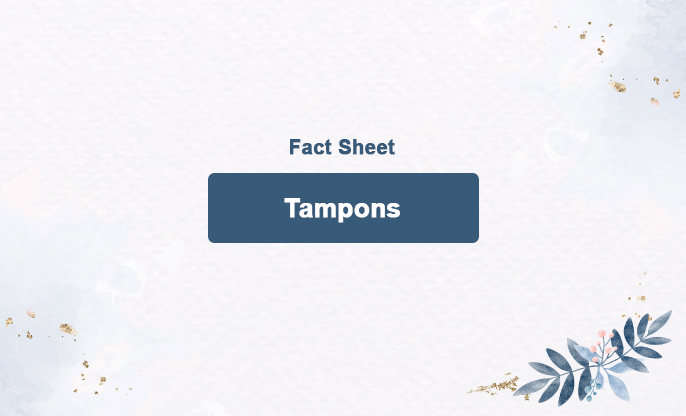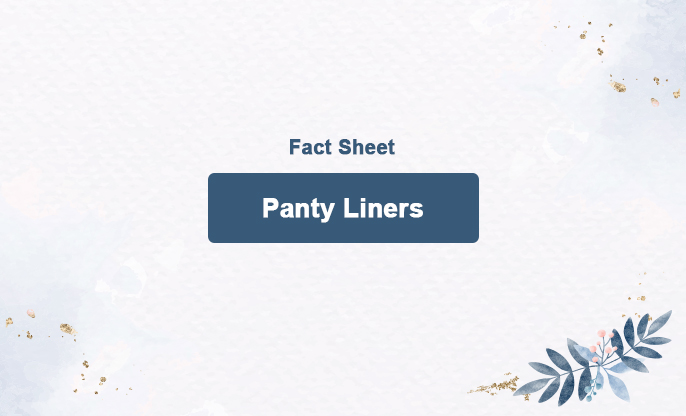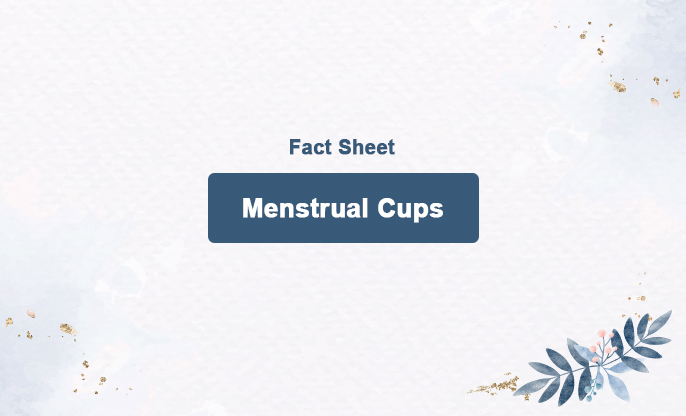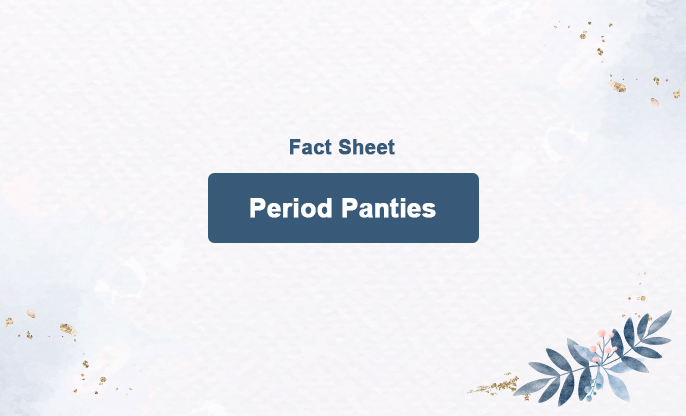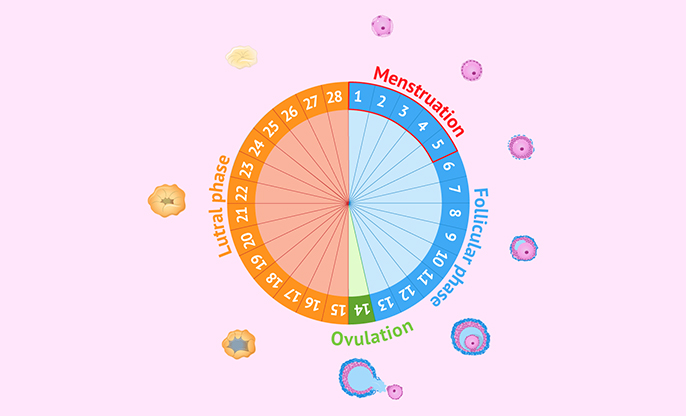
Your menstrual cycle is a beautiful, complex dance of changes in your body, setting the stage for the possibility of pregnancy. The typical cycle is about 28 days, though it varies from woman to woman and can change throughout your life. Getting to know the rhythms of your cycle and the hormonal shifts at each stage can deepen your understanding of your body and its reproductive health, and explain a lot about how you feel physically and emotionally throughout the month. So, let's begin getting to know those rhythms.
Your Menstrual
Cycle's Phases
- Menstrual Phase (Day 1-5): It
all starts with the first day of your period. This phase lasts until the
bleeding stops. Your uterus is shedding its lining, leading to the
menstrual flow. During this time, since your estrogen and progesterone
levels are low, you might notice cramps, mood swings, and fatigue. It’s a
time for gentle self-care and understanding your body’s need to rest.
- Follicular Phase (Day 1-13): This phase
begins with your period but focuses more on what's happening in your
ovaries. The pituitary gland releases follicle-stimulating hormone (FSH),
which encourages your ovaries to prepare several follicles, each holding
an egg. Only the strongest egg fully matures. As this phase progresses and
that dominant follicle gets ready to release its egg, your estrogen levels
climb, often lifting your mood and energy levels—feel that surge of
empowerment!
- Ovulation (Day 14 on a 28-day cycle): This is the
magic moment your body’s been preparing for. A peak in estrogen prompts
your brain to release luteinizing hormone (LH), leading to the release of
the mature egg from the ovary. It’s your body’s signal that it’s the prime
time for fertility. You might feel a twinge of pain or discomfort in your
abdomen—a sign called mittelschmerz, but it's a natural part of the
process.
- Luteal Phase (Day 15-28): After the egg's journey begins, the emptied follicle forms the corpus luteum, which secretes progesterone. This hormone gets your uterus ready just in case of pregnancy by thickening its lining. If you’re not pregnant, the corpus luteum withers, hormone levels drop, and you might start to feel the telltale signs of PMS like bloating, mood changes, and headaches as your body prepares to start the cycle over.
Hormonal Changes
and Their Impact on You
Throughout your cycle, hormones like estrogen and
progesterone rise and fall, influencing how you feel. Estrogen boosts during
the follicular phase, bringing a sense of well-being and vitality. Progesterone
in the luteal phase prepares your body for potential motherhood. The rise and
fall of FSH and LH are crucial too—they make sure your eggs are ready and
everything's in place for ovulation.
Remember - understanding your menstrual cycle is a powerful tool for taking control of your reproductive health. It let’s you recognize what's normal for you, spot any unusual symptoms early, and make informed choices about your body. This knowledge isn’t just clinical - it’s deeply personal and something to be embraced as part of the wonderful complexity of being you.
